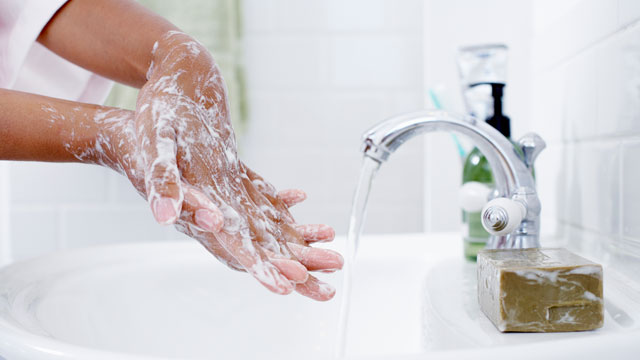Study: One-week brain training can increase cognitive flexibility and reduce OCD symptoms
 ___
___
OCD symptoms could be reduced with ‘brain-training’ app, study says (UPI):
“People with obsessive compulsive disorder could manage their symptoms, including excessive handwashing and contamination fears, by using a “brain training” app, according to its developers.
Researchers from the University of Cambridge in Britain, who tested the smartphone app on people without the disorder but had strong contamination fears, found one week of training can lead to significant improvements of OCD symptoms.
“This technology will allow people to gain help at any time within the environment where they live or work, rather than having to wait for appointments,” Dr. Barbara Sahakian from Cambridge’s Department of Psychiatry said in a press release. “The use of smartphone videos allows the treatment to be personalized to the individual” …
The World Health Organization has listed OCD as one of the top 20 causes of illness-related disability for individuals between 15 and 44 years of age … Aside from serious impacts on the lives of people with OCD, including mental health, relationships and the ability to hold down a job, excessive washing can be harmful physically because of the high use of surface cleansers or even bleach to clean hands.”
The Study:
Novel Smartphone Interventions Improve Cognitive Flexibility and Obsessive-Compulsive Disorder Symptoms in Individuals with Contamination Fears (Scientific Reports):
Abstract: One type of obsessive–compulsive disorder (OCD) is characterized by contamination fears and compulsive cleansing. Few effective treatments are available for this debilitating condition. Compulsive symptoms, such as excessive washing, are believed to be mediated by cognitive inflexibility—arguably the most striking cognitive impairment in OCD. In this study, we investigated the effects of two novel smartphone interventions on cognitive flexibility and OCD symptoms in healthy individuals with OCD-like contamination fears. In the first intervention, participants watched a brief video recording of themselves engaging in handwashing on a smartphone, four times a day, for a total of one week (N=?31). The second intervention was similar except that participants watched themselves repeatedly touching a disgust-inducing object (N=?31). In a third (control) “intervention”, participants watched themselves performing sequential hand movements (N=?31). As hypothesized, the two smartphone interventions, unlike the control, improved cognitive flexibility; as assessed on the Intradimensional–Extradimensional Set Shifting task (a sensitive marker of cognitive flexibility). The two interventions, unlike the control, also improved OCD symptoms (measured with the Obsessive–Compulsive Inventory–Revised and Yale–Brown Obsessive–Compulsive Scale). Finally, we found high levels of adherence to the interventions. These findings have significant clinical implications for OCD.
The Study in Context:
- FDA clears deep transcranial magnetic stimulation device to treat obsessive-compulsive disorder
- Q: What do people with schizophrenia, bipolar disorder, depression, addiction, obsessive-compulsive disorder, and anxiety have in common? A: A brain with similar gray-matter loss
- Can brain training work? Yes, if it meets these 5 conditions


